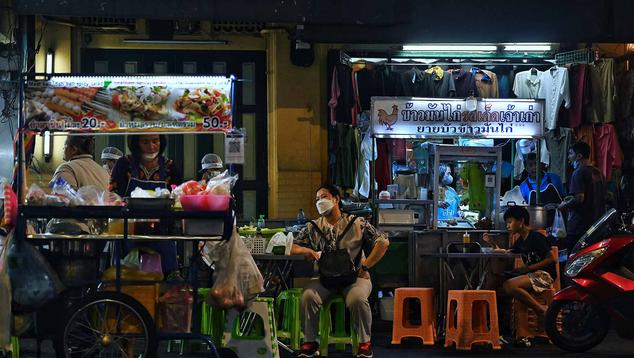Story Highlights
- Thais more likely to say local economy is getting worse (43%) rather than better (36%)
-
Thais more pessimistic than others in Southeast Asia about their living standards
-
46% of Thais had difficulty affording food in the past year
WASHINGTON, D.C. -- Millions of Thai voters will go to the polls this Sunday to elect a new prime minister. Gallup surveys conducted ahead of the vote suggest that the economy is set to be the defining issue of the election.
Quick Summary: For decades, the political landscape in Thailand has been defined by alternating periods of democratic and military rule. Current Prime Minister Prayuth Chan-ocha came to power in 2014 after a military coup that led to a rewriting of the country’s constitution. He has since seen his popularity wane; his approval rating fell sharply after the controversial 2019 election, where he held on to power in a coalition government with the help of the Thai Senate.
Thailand has also been characterized by factional politics and candidates swapping party allegiances. This election will be no different. Prayuth is set to run for reelection under the banner of a new party, United Thai Nation. He is one of several ex-army generals from various political parties aiming to hold on to power, nine years after the military coup, that retain widespread support among conservatives in Bangkok.
They will compete with the opposition Pheu Thai party, led by Paetongtarn Shinawatra -- daughter of former Prime Minister Thaksin Shinawatra -- who has been performing well in recent polls. The billionaire Shinawatra family has been a mainstay of Thai politics for years, and parties associated with it have won the highest numbers of seats in every election this century. Their support base is found largely in rural areas.
It will be the first election since the country saw mass civil unrest in 2020 and 2021, driven by a youth movement and widespread dissatisfaction with the roles of the monarchy and military-written constitution in Thai society. Young people aged 15 to 29 are far less likely than Thais aged 50 and older to approve of Prayuth’s job performance -- 17% versus 42%, respectively.
Thais Pessimistic About Economy, Living Standards: Southeast Asia’s second-largest economy faces a number of challenges in 2023 that may factor into the outcome of the election. These include an aging population, interest rate hikes, economic slowdowns in Thailand’s major importers in the West, and geopolitical tensions -- particularly the Russia-Ukraine conflict.
Despite minor economic improvement compared with the past couple of years, Thais are still more likely to say economic conditions in their area are getting worse (43%) than getting better (36%). Economic pessimism is particularly widespread in Thailand’s northeastern region, the least affluent in the country, where almost half think the local economy is getting worse, not better (48% versus 33%). The region's economy is dominated by agriculture and rice farming. Thailand's rice farms are relatively unproductive and inefficient compared with many neighboring countries such as Vietnam and Cambodia.
Thais living in urban areas are most pessimistic about the state of their economy -- 27% think conditions are getting better, compared with nearly half (45%) who think they are getting worse.
A number of other indicators highlight Thais’ current economic discontent:
- Thais are more pessimistic about their living standards than residents of any other country in Southeast Asia. In every other country in the region, more people felt their living standards were improving in 2022 than getting worse, whereas Thais were split on the trajectory of their living conditions.
- The proportion of Thais who say there were times in the past year when they had trouble paying for food edged upward in 2022, with 46% reporting they had difficulty with this. These struggles were highest in the northeast (51%) and northern (50%) regions of the country.
- A majority of Thais (58%), particularly those in urban areas (64%), say it is a bad time to find a job in their area. Among Southeast Asian countries, only in Myanmar is the population more pessimistic about their local employment outlook.
Bottom Line
Candidates are keenly attuned to the importance of the economy in this election and have promised policies to provide relief, including higher wages, more benefits to mothers, and generous welfare subsidies for the elderly. Such populist promises are geared to appeal to Thais’ economic concerns, but critics say they will increase the financial burden on the government while doing little to spur economic growth in the country.
Whichever candidate wins, fundamental change to the Thai political landscape seems improbable. Either way, it looks likely that a member of the elite -- whether an ex-military general or a member of a billionaire family with deep ties to Thai politics -- will emerge victorious. Animosity between these two groups has defined Thai politics for decades. Whoever wins will face systemic economic challenges and an uphill task in restoring faith in the country’s leadership, particularly among younger Thais.
To stay up to date with the latest Gallup News insights and updates, follow us on Twitter.
For complete methodology and specific survey dates, please review Gallup's Country Data Set details.
Learn more about how the Gallup World Poll works.




